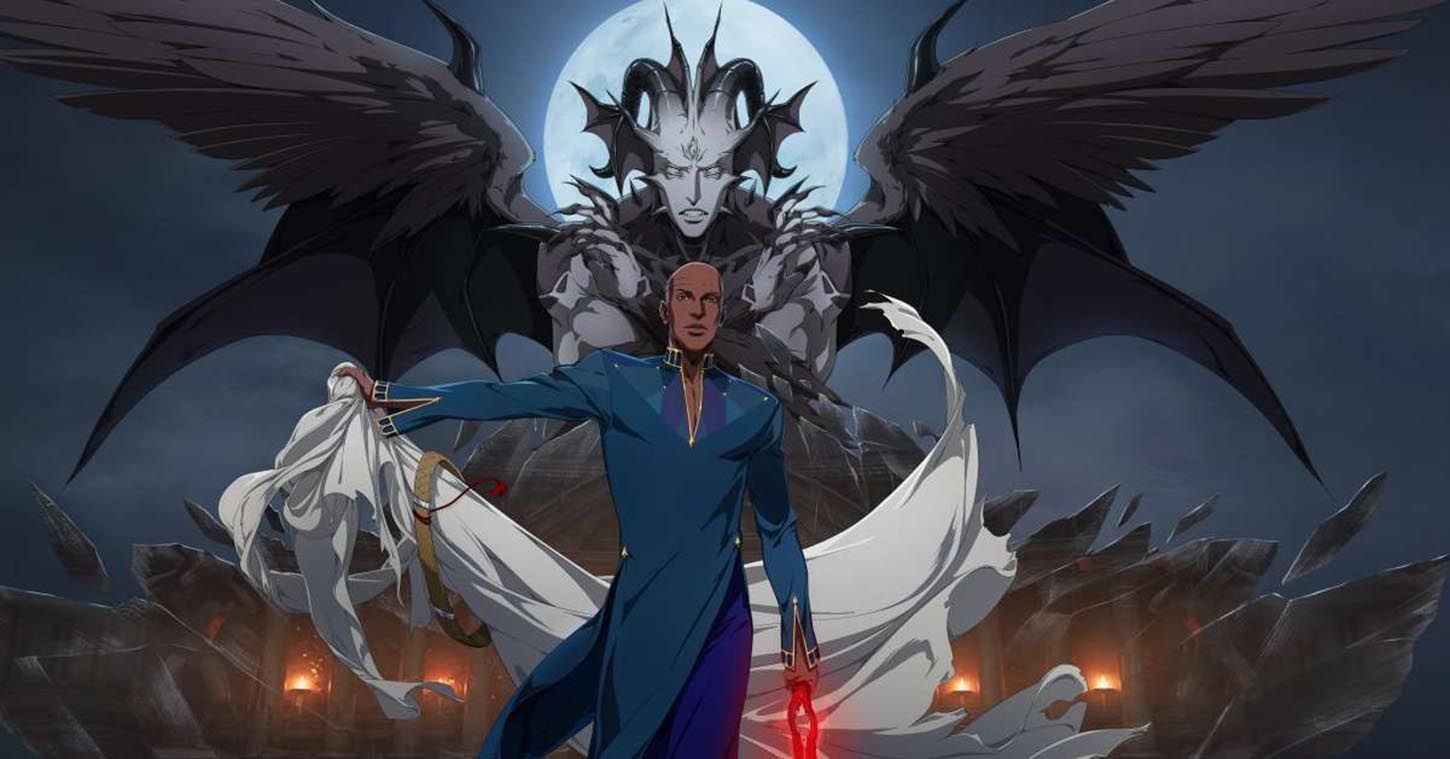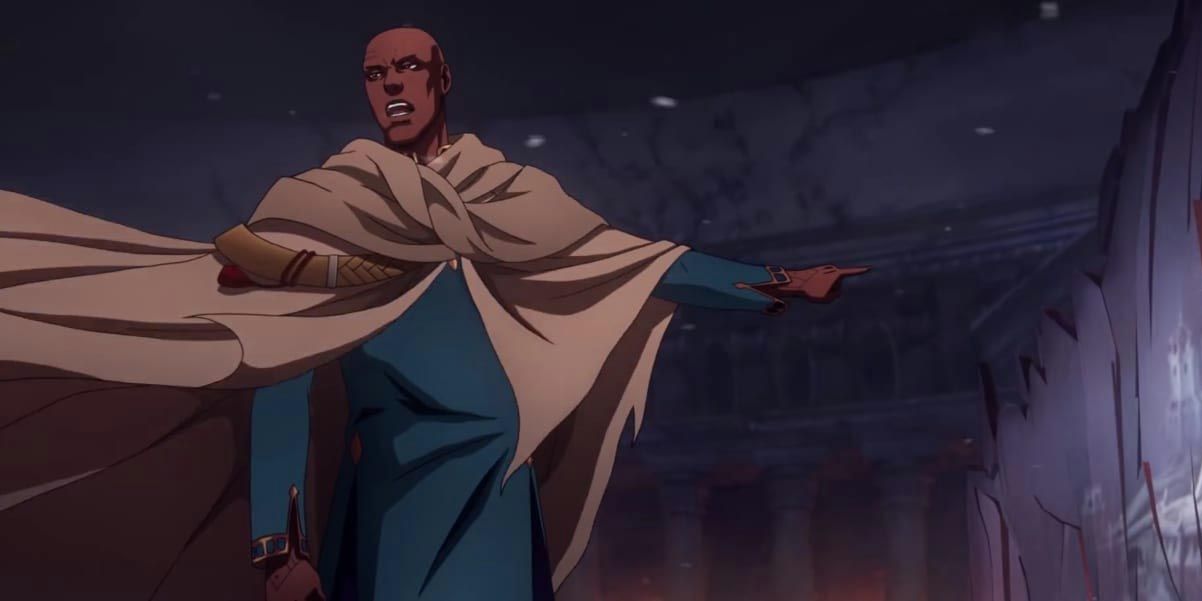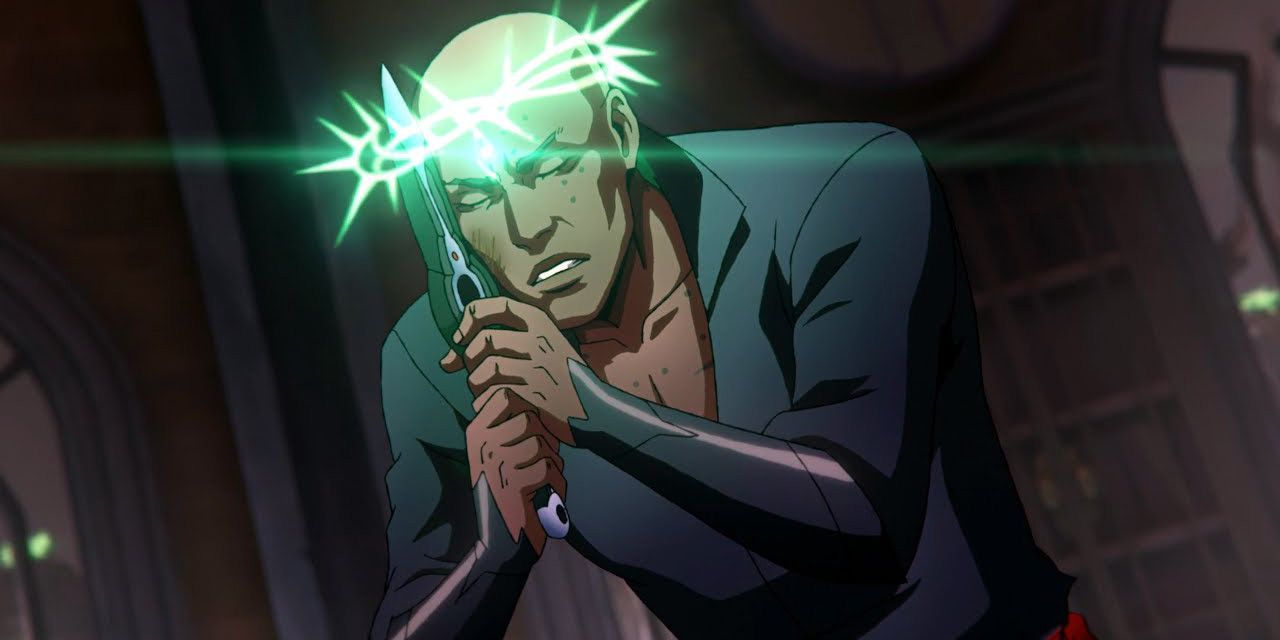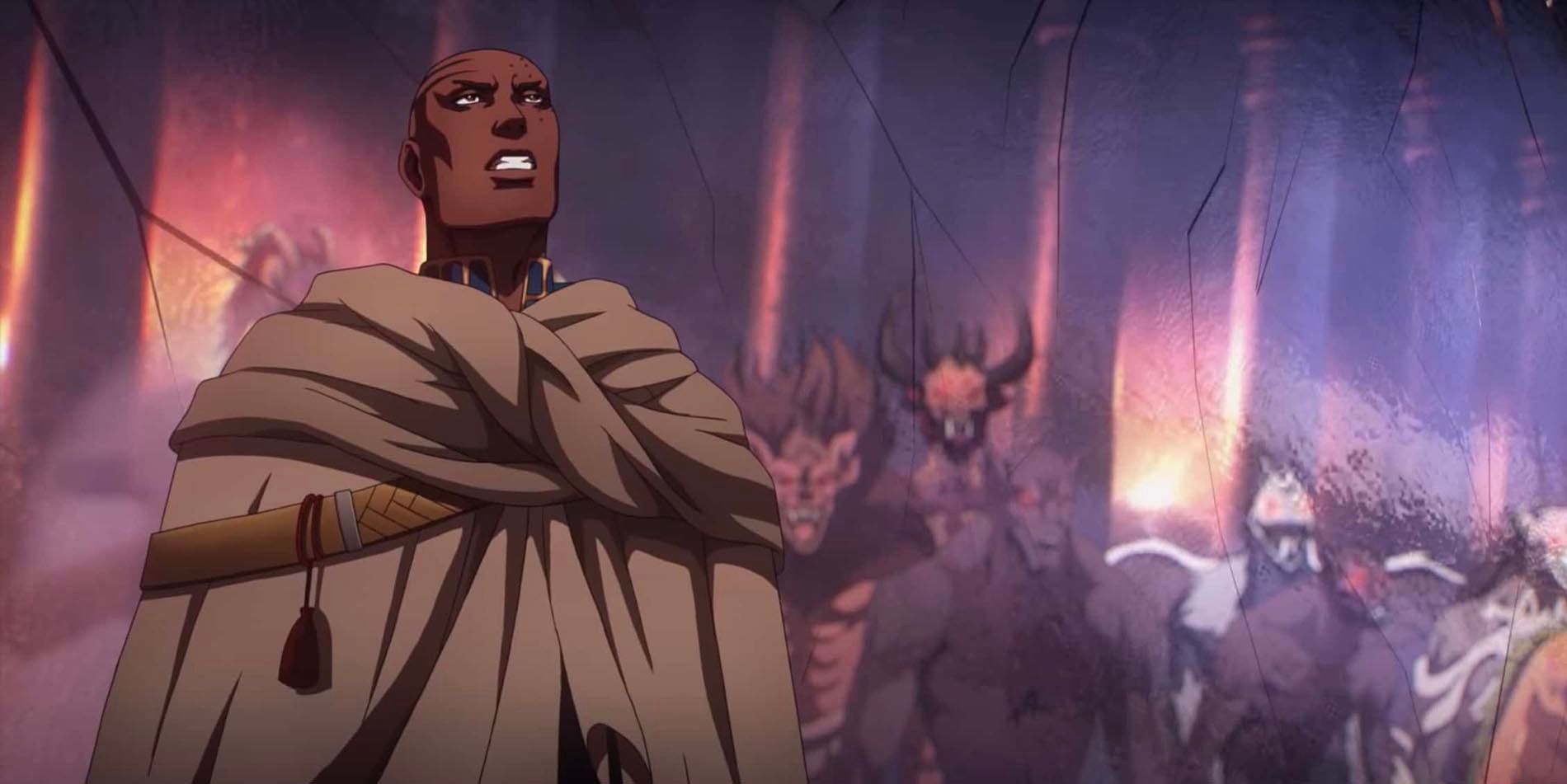WARNING: The following contains spoilers for Castlevania Season 4, now streaming on Netflix.
As fans burn through Castlevania Season 4 on Netflix, they’re shown spectacular fight scenes and ghastly forces of evil, but what shines most are the enthralling characters leading the show. Perhaps the most complex of them all is Isaac -- a queer, person of color who was Dracula’s former forgemaster general. Throughout the course of Castlevania, Isaac’s storyline shows off his enriching character growth and depth.
Introduced alongside his forgemaster counterpart Hector in Season 2, Isaac was initially a man devoted to his friend Dracula’s fight to end humanity, unleashing swarms of his Night Creatures to ravage human villages. However, after Dracula’s death, he embarks on a compelling journey of self-discovery, one which ends in redemption and mercy in Season 4.
Isaac was so loyal to his close friend and ally Dracula that he was prepared to die by the vampire lord’s side when Alucard, Sypha, and Trevor teamed up to end his life in Castlevania Season 2. However, Dracula cast Isaac into his teleportation mirror to save him, leaving the forgemaster to walk his own path throughout Castlevania Season 3. During this trek through the desert, Isaac grieved his friend’s death but also reflected on his purpose in the destruction of humanity. His hatred for humanity was reinvigorated multiple times as he encountered more corruption and cruelty, and their subsequent deaths allowed him to build a new undead army.
However, his once resolute hatred also wavered when some human individuals along the way offered him kindness. In Tunis, Isaac came across an old blind merchant who could sense his powers from Hell, yet still freely offered him a distance mirror, which allowed him to find out where Hector was. Isaac then met the Captain, a sailor who transported him to Genoa, and with whom he had a fond conversation about his plans after enacting his revenge on Carmilla for betraying Dracula.
While these few pleasant instances don’t erase Isaac’s horrifying experience of abuse, they made him reassess his role as a forgemaster -- what should he do with his power now that it’s not serving Dracula’s vision? Isaac had plans to get revenge on Carmilla as soon as he was made aware of her betrayal, but he hadn’t asked himself, “what next?”
Before heading straight for Carmilla, Isaac was thrown an obstacle in Season 3 in the form of the Magician, a deeply evil human who used mind-enslaving magic on a whole city. Overcoming the Magician’s attempt to control him as well, Isaac took the old man’s life, which dispelled his magic, allowing Isaac to instead transform the humans into his Night Creatures.
Later, in Season 4, Episode 3, Isaac reflected on killing the despicable magician, determining that taking this life felt more righteous than others and that he liked that feeling. The once unforgiving forgemaster also instructed his Night Creatures to repair the damage to the city in order to make it livable for those who may discover it afterward. This charitable act seemed against the hellscape monsters’ nature, as one loquacious creature pointed out to Isaac.
Instead of dismissing this creature as a mere tool, Isaac gave it a berry and explained how he can reforge lives to act however he wishes -- not solely for destruction and despoiling. The berry evoked memories for the creature, proving that lives on Earth, as well as those sent to Hell, have significance. This contemplative and calm demeanor is what makes Isaac’s character so captivating -- he’s a man with immense power, but without succinct purpose. Furthermore, he doesn’t seem to be in a hurry to find a purpose; instead, relishing a future of discovery that lies ahead.
In Castlevania Season 4, Episode 6, Isaac carried forth his plan to infiltrate Carmilla’s fortress with his army and slay her -- and he succeeded. However, instead of punishing Hector for betraying Dracula by Carmilla’s side, he extended a hand of friendship to him. It’s at this moment that Isaac concluded that revenge is for children and that they should both grow up. Enlightened from his journey, Isaac shared his newfound perspective on agency with Hector, convincing him that Dracula has earned his rest and shouldn’t be reawakened. During this speech, Isaac even fixed a drink with lime, an allusion back to his conversation with The Captain who opened his eyes to a new flavor of life. Isaac clearly resonated with The Captain’s tidbit of wisdom: “If you don’t have your own story, you become part of someone else's.”
Considering Isaac’s introduction as a spiteful villain, his decision to be merciful to Hector and humanity, on the whole, is striking yet well-grounded. It’s rare to encounter characters who go through a monumental change, and for the shift to be so eloquent. Isaac’s contempt for humanity used to be so intense that he whipped himself as penance for his own human body, but by the end of Castlevania he forgave his fellow human forgemaster for betraying Dracula and saved humanity from Carmilla’s evil reign. Isaac’s change of heart would’ve been jarring if his arc didn’t grant him time to process his misanthropic beliefs by talking to both humans and his Night Creatures. After realizing his own agency, he no longer sees the world in black and white, admitting that Dracula’s way may not have been the right one after all. He’s neither hero nor villain by the end, but he’s free to live as he chooses.
Isaac is easily the character who goes through the most growth throughout Castlevania. Trevor Belmont may have learned how to love, Alucard to forgive and Sypha to bear grief, but Isaac learns how to claim his own agency and rewrites his story of vengeful servitude. While Castlevania could’ve spent a little more time on him in the final episodes, as it did with Hector and Lenore, Isaac’s end is arguably the most fulfilling and inspiring of all.




